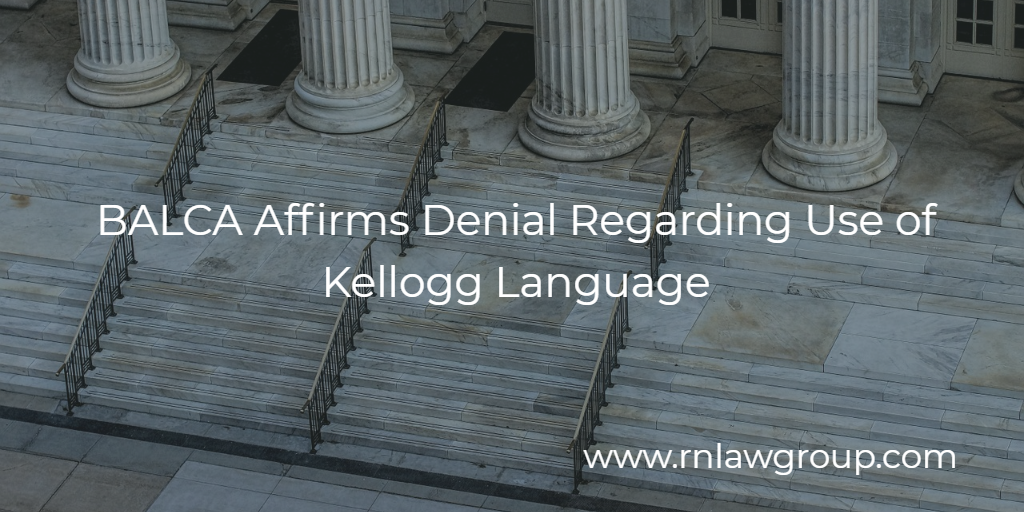
BALCA Affirms Denial Regarding Use of Kellogg Language
Prior to the filing of ETA Form 9089, the Employer must engage in good-faith recruitment effort to ensure that U.S. workers in the labor market are protected and that the job opportunity is open to any U.S. worker, per 20 C.F.R. § 656.10(C)(9). The good-faith recruitment effort includes three mandatory efforts, which are the job order, two Sunday newspaper prints, and the notice of filing and three additional efforts such as the employer’s company website, job search website, and on-campus recruiting.
Once the recruitment efforts have been completed, there is the 30-day “quiet” period prior to commencement of filing the ETA Form 9089. During this time and up to the filing of the ETA Form 9089, the Employer must review each application received against the minimum requirements of the position. If the Employer determines that an applicant does not qualify for the position, then they must provide lawful reasons for the rejection of the applicant within the recruitment report. If upon review, an applicant’s credentials show they may qualify for the position, it is not only imperative, but is the Employer’s duty to inquire further, such as through a preliminary questionnaire or an interview, to determine whether or not an applicant meets the minimum requirements for the position. All of this must be included in the recruitment report and properly documented.
In a recent decision from the Board of Alien Labor Certification Appeals (BALCA), the Board stresses the importance of conducting and executing good-faith recruitment. In the Matter of Smalls Insurance Agency, Inc. (09/28/2020), BALCA affirmed the Certifying Officer’s denial of the labor certification because the Employer failed to interview potentially qualified U.S. applicants for the prospective job opportunity of an Account Associate.
In this case, the Employer stated on the PERM form that the minimum requirements for the position of Account Associate was an Associate’s degree in any field of study and 24 months of experience in the alternate occupations of Bookkeeping or Accounting. Further, on the ETA Form 9089, the Employer used the Kellogg language, stating “any suitable combination of training, education and experience equivalent to primary job requirements” would be acceptable.
Here, the labor certification was denied because the Employer failed to interview potentially qualified U.S. applicants. As a result of the Employer’s inclusion of the Kellogg language, in a later review, a three-judge panel of the Board ultimately found that the Employer was obligated to interview one of the applicants in order to better determine whether or not they met the requirements for the position.
The Employer argued the Kellogg language listed on the ETA Form 9089 to be ineffective because in Section H, Item 8 of the Form, the Employer selected that an alternate combination of education and experience was not acceptable. However, the Board argued that an ambiguity created on the ETA Form 9089 by the Employer cannot be corrected by the Board as it is solely the Employer who is responsible in making perfectly clear to the Certifying Officer, BALCA and prospective applicant’s what the minimum requirements are for the job opportunity.
The Board argued that if an applicant’s resume shows through experience, education, and training that they may meet the Employer’s minimum requirements then Employer has the duty to inquire further as to the applicant’s qualifications. In this case, the Board found that although the U.S. applicant did not have the 24 months of experience in the alternate occupations of Bookkeeping or Accounting, they did have any suitable combination of training, education and experience equivalent to the primary job requirements due to their: 1) degree, 2) experience gained through coursework, and 3) relatable skills gained through prior employment. Therefore, in the Matter of Smalls Insurance Agency, Inc., the Board agreed that the labor certification was rightfully denied because the Employer failed to inquire further when, per the applicant’s credentials, they may meet the minimum requirements for the position.
When an Employer is assessing whether a U.S. applicant is qualified, they must do so against the minimum requirements as listed on the ETA Form 9089. Per 20 C.F.R. § 656.21(e)(4), if an applicant does not qualify, then the Employer must explain the lawful, job-related reason(s) for not hiring a U.S. worker. Further, per the regulation, an Employer may not reject U.S. workers for lack of skills necessary to perform the duties involved in the occupation, when the U.S. worker is capable of acquiring the skills during a reasonable period of on-the-job training. Therefore, in order to rightfully disqualify an applicant, the Employer must determine that 1) the applicant doesn’t meet the minimum requirements and 2) any skills that are lacking cannot be remedied through reasonable on-the-job training.
All in all, when an Employer is reviewing applications during the recruitment process, it is advisable to “play it safe” and to reach out to applicant’s when there is any doubt as to whether or not the applicant’s credentials may meet the minimum requirements for the position. In doing so, the Employer will remain compliant with the Labor Certification Process regulations and will have conducted and executed good-faith recruitment.
By: Ruth Garbanzo

